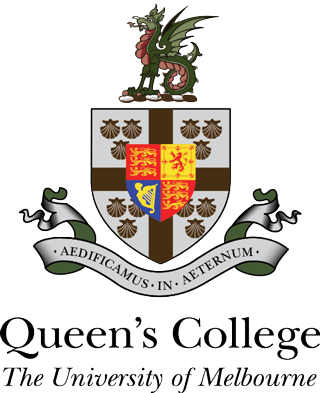Vale, Jack Clarke
Yesterday the sad news reached the College that an end had come to the long life of its beloved former Vice-Master, Jack Clarke. He died peacefully in the early hours of the morning of 13 December at Epworth Freemasons Hospital in East Melbourne. In May earlier this year he had reached the age of 95.
Jack Clarke will be remembered above all for the 25 years that he was the Vice-Master of the College from 1964 to 1988. That role suited him perfectly. He was able to use all his people skills and his deep psychological insight in guiding the lives of young people and serving the College community in an amazingly wide variety of ways. But much in his earlier life prepared him for that role.
Jack was born in 1921 in Sheffield, Tasmania, the son of a Methodist minister. When his family moved to Melbourne, he attended Wesley College, but on leaving school he did not go to university straight away. After working in a bank for two years, he enlisted in 1941 and served first the Australian Army and then the British Army for a period of five years, ending his service with the rank of captain. After a few more years in the bank he enrolled at the University of Melbourne and obtained a degree in Arts and diplomas in Psychology, Social Work and Education. During that time he was a non-resident student at Queen’s. In the years from 1955 to 1963 he took on a variety of positions as a social worker, teacher, lecturer and psychologist. But it was when he was appointed Vice-Master of Queen’s in 1964 that he discovered his true vocation.
When Jack arrived at Queen’s he found that the Master Dr Raynor Johnson was largely absent, so that much responsibility immediately fell on his shoulders. In 1966 the new Master Dr Owen Parnaby arrived and for the next two decades they formed a legendary partnership. Jack’s primary focus was on the residents, first men only, from 1973 onwards both men and women. All those who lived at the College in those years will bear witness to the deep concern that Jack had for the welfare and wellbeing of the residents under his care. He was a man of complete integrity and set the highest standards for himself and others, based on his Christian faith and his belief in the power of goodness. But he also understood his young charges and was able to assist them in the many difficulties they encountered (the notion of mental health was still in its infancy). His influence on the lives of generations of residents is immeasurable and explains the unmatched respect and love that he inspired in them and others with whom he made contact.
During all this time he received the most wonderful support from his wife Elaine as they lived in the Vice-Master’s residence on the western side of the College with their four children. Six years ago the Wyvern Society gave its annual dinner the title “Jack’s back”. The whole evening was an outpouring of affection for Jack and Elaine quite unmatched in the history of Queen’s.
It should also be mentioned that after his retirement Jack served as Acting Master for 8 months in 1992/3 and that he gave four other Colleges assistance when they needed temporary leadership. He was also engaged in many other community activities, most notably the Welsh Choir, with which he went on a number of overseas trips. Jack was awarded a medal in the Order of Australia in 1990 for his service to youth and to the community. He had been elected a Fellow of the College the previous year.
Jack’s interest in his past students was unfailing. He would remember all their names and much of what they were doing with their lives. Every newspaper report involving a Wyvern would be cut out and stored away until such time as it could be donated to the College. Even in his final years and months he would be engaged with what was happening at Queen’s and would not hesitate to phone the Master or other members of staff if they were in need of some gentle advice. It is a cliché to say that we will never see his like again, but in the case of Jack the phrase is utterly appropriate. His death marks the passing of an era.
Our thoughts and prayers are with his wife Elaine and their children, and also with the other family members, including eight grandchildren. Those who wish to pay their final respects to Jack should look out for notices that will be placed in the Age. It is expected that there will be a memorial service held in Eakins Hall in the new year.
